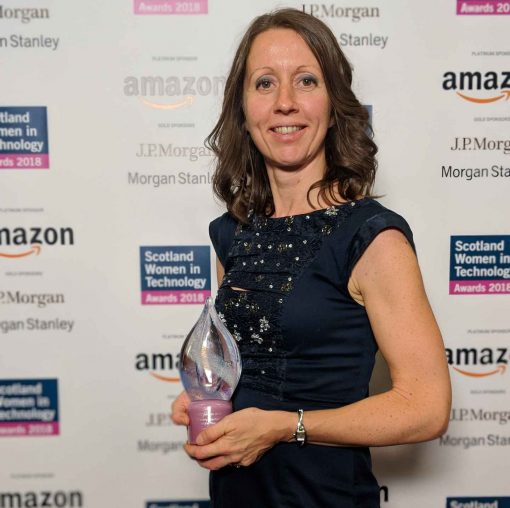Technological Fruit Falls from Scientific Trees – A Spotlight on Lorna Hay’s Experience Since PGCert
If you were asked “What’s the best thing about being a teacher?”, what would you say? Is it introducing young minds to new concepts? Is it that fact that you are continually inspiring future generations? Or is it bringing a quiet pupil to life with a unique project? Primary Engineer® wants to shine a spotlight on the incredible work of Lorna Hay, a primary school teacher in Scotland, and how her ‘Tinker Time’ was inspired by her experience with Primary Engineer’s Postgraduate Certificate in Engineering STEM Learning (PGCert).
Before participating in Primary Engineer’s PGCert, Lorna’s STEM lessons were predominantly teacher-led, although the children’s ideas were regularly used to guide learning. Now, following the PGCert, Lorna admits that she now “facilitates learning” far more through ‘Tinker Time’, ramping up the autonomy of her learners. Taking a step back and allowing her classroom to get hands-on with practical projects, Lorna’s confidence to take learning risks has improved her bravery in tackling STEM, allowing pupils to take the classroom reigns. In the beginning, Lorna noticed that her pupils were extremely negative; common phrases were “I can’t do it” and “it’s too difficult.” Rather than be deterred, Lorna persevered with her adopted method of learning. Within a couple of months, the tone of the classroom had improved drastically, with common phrases now being “I’m going to try to do this” and “how can I make it better?”.
To highlight this learning evolution, an impactful case study is ‘Pupil A’. This pupil had a challenging upbringing and home life, which impacted their attainment level negatively, as well as their ability to focus for long periods of time. ‘Pupil A’ had the strongest fixed mindset of the classroom, making consistent comments like “I can’t do it” during Tinker Time. Improvements in teamwork, criticality, problem-solving and determination were observed quickly. Once ‘Tinker Time’ had been fully integrated in the learning of Lorna’s classroom, a survey was conducted. In response to the question: “On a scale of 1-5, how much do you think your problem finding and solving skills have improved as a result of Tinker Time?”, ‘Pupil A’ answered with ‘5’ (extremely)! It goes to show that this incorporated method of practical learning as part of the PGCert programme has a huge impact on even the most vulnerable of class members.
When we asked Lorna “What were the children’s thoughts on this style of learning?”, the consensus was clear: “They loved it! I was able to take a step back and allow pupils to take [their learning] upon themselves. It gave them the choice to engage with engineering, making them feel more invested in something they find interesting.” By enabling this way of learning, pupils found their own pathway into STEM through autonomy. Lorna also noticed that, although slower in the beginning, the overall engagement with STEM when Tinker Time was fully integrated was extremely efficient! To give more detail, ideation was much quicker and learning was deep-seeded for impactful interaction. For some, however, this slight lapse in classroom control and structure was a challenge and slowed their progress. In essence, methods of learning are not a blanket success. Lorna noticed this and adapted her interaction with these pupils, bringing a more ‘hands-on’ method of teaching.
In an exciting turn of events, Lorna Hay’s school was awarded as one of the first “STEM Nation Schools” in Scotland! Lorna’s and her colleagues’ classrooms demonstrated articulate skill development, inventions and effective learning to inspectors. For Lorna specifically, her excitement was palpable: “[It was] fantastic! We have a big passion for STEM in our school and it is great to see that being recognised.” Following Lorna’s involvement with Primary Engineer’s PGCert, more teachers at the school have committed to furthering their own digital learning and practical STEM education, inspiring each other to adopt this innovative way of teaching STEM.
Primary Engineer’s Postgraduate Certificate in Engineering STEM Learning will be running in January of 2022, providing 60 Master’s level/SCQF Level 11 credits. Email us at [email protected] to get more information. For more details on how the course impacts real classrooms, we have an in-depth impact report here. If you’d like to find out more about Primary Engineer’s Postgraduate Certificate in Engineering STEM Learning, visit our website.

